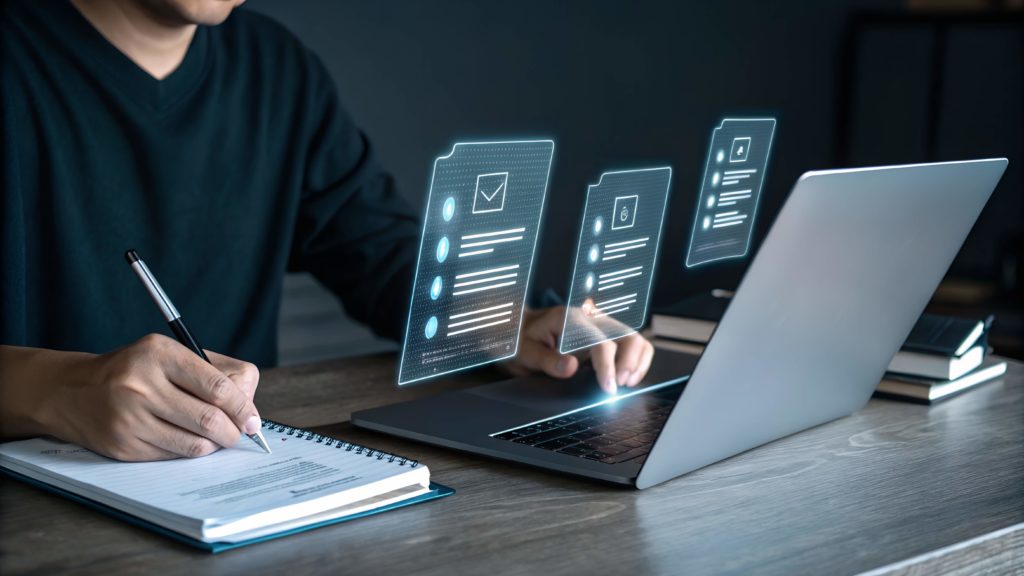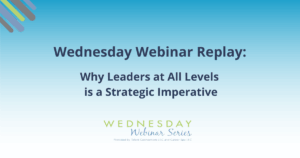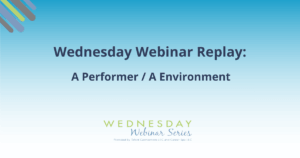There have been many impactful dynamics within HR over the last several decades, including Y2K, Covid, and now kiss cams! However, nothing has come on faster and stronger than Artificial Intelligence (AI).
AI is reshaping industries at every level, and HR is no exception. HR is now blending human judgment with machine intelligence to enhance decision-making, streamline processes, and create more personalized employee experiences. Far from replacing the human element, AI is emerging as a powerful partner to HR professionals.
Here are some of the dynamics of AI in HR:
1. Smarter Talent Acquisition
AI is revolutionizing recruitment by automating time-consuming processes such as resume screening, candidate matching, and interview scheduling.
- Automated Resume Screening: AI algorithms quickly filter applicants based on skills, experience, and keywords, reducing the time spent on initial shortlisting.
- Predictive Hiring: Tools can analyze candidate data to predict job performance and cultural fit, helping companies make better hiring decisions.
- Bias Reduction: When trained and implemented carefully, AI can minimize unconscious human bias in candidate selection—though it also raises questions about algorithmic fairness.
Takeaway #1: AI can surface the most promising candidates, but it’s HR professionals who bring the human intuition and relational skills needed to understand motivations, cultural nuances, and long-term fit. Think of AI as narrowing the haystack, while recruiters still identify the right needle.
2. Personalized Employee Development
AI-powered learning platforms assess employees’ strengths, weaknesses, and career goals to recommend tailored training programs.
- Skill Gap Analysis: AI tools identify skills employees need to grow, aligning them with company objectives.
- Adaptive Learning: Training modules adjust in real time based on learner progress, increasing retention and engagement.
- Career Path Forecasting: Predictive analytics can suggest potential career moves and succession plans.
Takeaway #2: AI can help leaders efficiently identify training opportunities, but growth only sticks when HR professionals and managers actively mentor, encourage, and provide feedback. Technology can point the way, but people are the ones who inspire confidence and professional success.
3. Enhanced Employee Engagement and Retention
AI-driven HR analytics are being used to monitor workforce sentiment and predict turnover risks.
- Sentiment Analysis: By analyzing surveys, chat logs, and feedback, AI can detect changes in morale and job satisfaction.
- Retention Predictors: AI models forecast which employees are at risk of leaving, allowing HR to intervene proactively.
- Personalized Benefits: AI systems help tailor compensation, wellness programs, and perks to individual employee preferences.
Takeaway #3: AI can signal when employees may be disengaged, but no algorithm can replace a sincere conversation, active listening, or an empathetic leader who makes someone feel valued. The data gives direction, but humans create connection.
4. Streamlined Administrative Work
Automation in HR reduces repetitive paperwork and administrative burdens, freeing up professionals to focus on strategic work.
- Payroll & Compliance Automation: AI ensures accurate and timely payroll processing while keeping up with changing regulations.
- Self-Service Portals: Chatbots answer HR-related questions instantly, from vacation policies to benefits enrollment.
- Workflow Automation: Tasks such as onboarding, leave management, and performance reviews can be partially or fully automated.
Takeaway #4: By clearing away the paperwork, AI lets HR professionals devote their time to what can’t be automated: building trust, resolving conflicts, and shaping culture. In other words, AI handles the transactional work so HR professionals can focus on the bigger picture.
5. Ethical and Legal Considerations
While AI offers tremendous potential, it also poses challenges that HR departments must address.
- Data Privacy: HR handles sensitive employee data, so AI implementation must comply with strict data protection laws.
- Algorithmic Bias: Poorly designed AI can reinforce existing prejudices if training data is unbalanced.
- Transparency: Employees may be wary of AI’s role in decision-making, making communication and transparency essential.
Takeaway #5: While AI can process vast amounts of data, it takes human oversight to ensure decisions are ethical, transparent, and aligned with company values. Because of this, HR’s role becomes even more critical as the conscience guiding how technology is applied.
AI in HR will likely evolve toward deeper integration with other business functions, providing real-time workforce insights and enabling truly predictive HR management. The next generation of AI tools may focus on human-AI collaboration, where technology handles data-driven tasks while HR professionals focus on empathy, ethics, and human connection.
Artificial Intelligence is not replacing HR—it’s amplifying it. By automating routine processes, offering data-driven insights, and enabling personalized employee experiences, AI empowers HR professionals to focus on what matters most: building a motivated, skilled, and engaged workforce. As the technology matures, the challenge will be ensuring that AI is implemented ethically, transparently, and with a human-first mindset.




